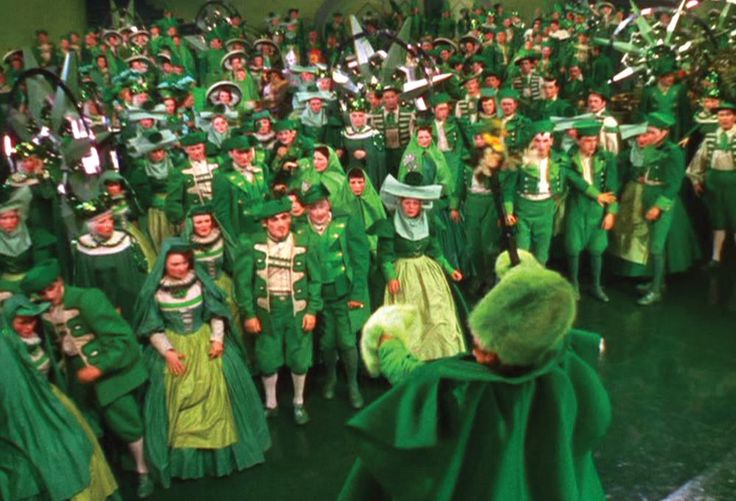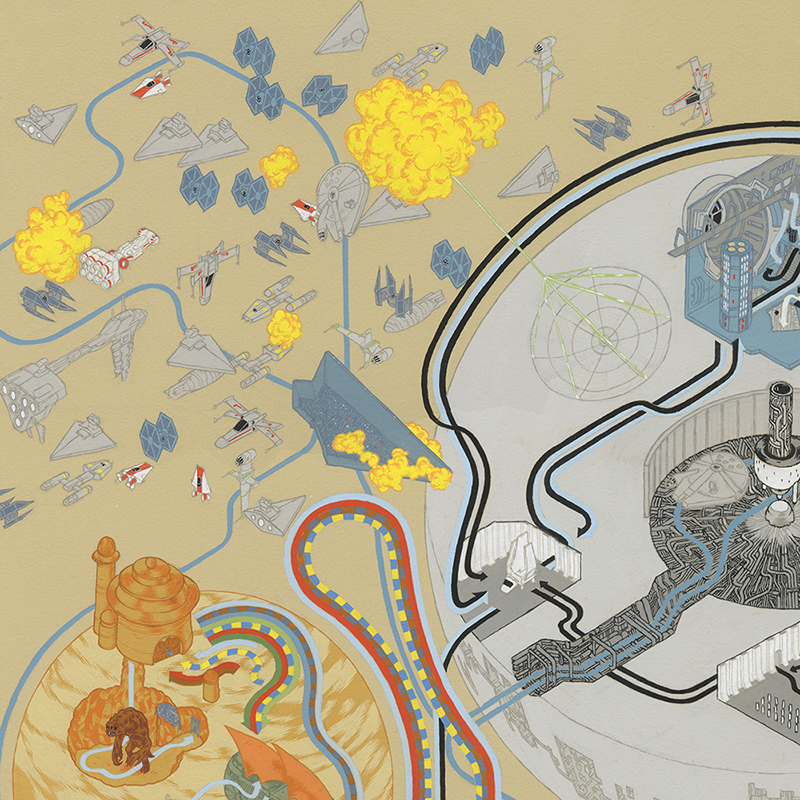A Pinch of Dune, A Dash of Lord of the Rings: Important Spices in Literature
The spice must flow.
I remember reading “how people lived in the Middle Ages” books growing up and aside from wanting pretty desperately to be a knight, I remember thinking how bland the food must have been. I mean, it was only the nobility who got those cute little salt dishes. (You pick up the salt with your pinky! We should bring that back!) Everyone else just got boring vegetable stew. And it really didn’t seem fair.
All of this to say that anything that can make food flavorful, from turmeric to thyme, cinnamon to cilantro, is a good thing in my book. Literature is peppered (ha) with these plant-based substances, and since tNational Herbs and Spices Day [June 10] is approaching (what, it's a thing!) let’s take a look at some of the standouts that do so much more than season:
Gillyweed, the Harry Potter series: I definitely wouldn’t recommend sprinkling this in your soup, but Gillyweed lets you breathe under water. Under water! You get to be a mermaid for an hour! There is nothing wrong with this scenario! Sure the consistency is not great—“rubbery” is, I believe, the adjective used—and you end up with webbed digits, but in the grand scheme of being a mermaid, these barely even qualify as sacrifices.
Melange, Dune: “He who controls the spice controls the universe.”
You’ve got to give props to a substance that can make or break kings and emperors. Spice, or mélange, is the drug of Frank Herbert’s seminal science fiction series. It improves awareness, increases lifespans, and even unlocks prescience in some users, making interstellar travel possible. It’s a pretty powerful substance, and controlling it means controlling the entire economy, the transport industry, monarchs and religious leaders. Also, electric blue eyes could be fun.
Cinnamon, The Cinnamon Peeler: We all know poems can be romantic, but Michael Ondaatje’s “The Cinnamon Peeler” blows right past romance and dives head first into the cinnamon-scented erotic.
“Your breasts and shoulders would reek
You could never walk through markets
without the profession of my fingers
floating over you. The blind would
stumble certain of whom they approached
though you might bathe
under rain gutters, monsoon.”
The cinnamon serves both as a symbol for, and proof of, erotic love, and there are few better metaphors than the heavy, pungent aroma.
Athelas, The Lord of the Rings trilogy: You might think that athelas, or kingsfoil, is just your run-of-the-mill healing plant, but you’d be wrong. It takes some pretty impressive power to save a little hobbit from a Morgul-blade wound inflicted by the Witch King.
Throughout the series, Aragorn uses the plant to heal a variety of companions, and it is these actions that cement his return as monarch: Gondor has long had a prophecy that the plant can be especially powerful in the hands of a king. Not bad for a weed.
Moly, The Odyssey: When super-powered witches start turning everyone into livestock, there’s really only one thing left for a Greek hero to do: hit up Hermes for a plant “dangerous for a mortal man to pluck from the soil, but not the deathless gods.”
Moly, speculated by some to be the snowdrop, is purest white with black roots, and manages to protect Odysseus from Circe’s charms. He rescues his be-pigged friends and goes on his merry way. Not too difficult a task when your dealer is a trickster god.
Honorable mention goes to opium. Though poppy pods aren’t usually used as garnish, we can’t deny the plant’s talent for fueling many a Romantic poem. And it seems to be a favorite among caterpillars.



